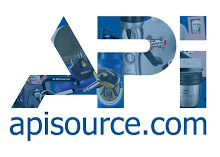"I really care about my customers," Terry told me as we were driving to an appointment. "I try to do the very best I can for them and make sure that their needs are met."
"Sounds good," I thought to myself. "But I wonder if it's true."
Most sellers I know go to great pains to point out to me just how customer-focused they are. They want to make sure I know that they're not pushy or manipulative or sleazy in any way. Yet when they get into meetings with prospective clients, they quickly switch into a seller-centric mode of operation before they even know what's happening.
That's exactly what occurred in my sales call with Terry. Before we went in, I asked her to tell me what she'd said to get the appointment.
"I told him that we'd introduced some exciting new services that I thought could help reduce turnaround time in their production area," Terry told me
While the meeting appeared to have a customer-centric agenda, what actually played out during our time with the prospect was an entirely different matter.
After a few minutes of genial exchanges and a bit of data gathering about the business and operation, the decision maker asked Terry about her new offering.
Excited to learn of his interest, she started talking about it. Then she pulled out brochure. And she kept on talking - answering his questions, one-by-one, in excruciating detail.
Before we knew it, her time was up and we were escorted to the lobby. The decision maker thanked us for our time and instructed Terry to keep in touch.
Out we walked. Empty-handed. With no hope of ever selling anything.
But Terry was customer-focused, right? She graciously answered all his questions and told him exactly what he wanted to know about her offering.
I'm sorry. I beg to disagree. Terry wasted that man's time. She wasn't one bit concerned about his business operation. She just cared about being perceived as a service-oriented and helpful person.
If you want to truly be customer-focused, then stop being so darned NICE!
Mind you, I'm not talking about being rude, mean or ornery to prospective clients. Instead, your job today is to help customers figure out how to improve their business operations. That means increasing or decreasing something - and especially "something" that's tied in to one of their key business metrics.
Here are several ideas on how you can truly be customer-centric in today's marketplace:
1. Become an expert in your client's business.
Nothing beats an immersion course. Roll up your sleeves and become an apprentice for a week. Identify the goals and objectives, mission-critical business imperatives and critical success factors. Find out what's happening in their industry.
Learn how your product or service fits into their work flow. Discover where the gaps are - what kind of problems occur in their current process or methodology. Explore the business ramifications of these problems and the value of solving them.
Some sellers tell me they can't take the time to do this ... that they need to be out making sales calls and signing contracts. Or they say their boss won't let them do this.
Yet their customer knowledge is so shallow - and I mean incredibly shallow - that they can't even hold an intelligent conversation with a key decision maker for longer than five minutes.
You can't be customer-centric if you don't understand your client's business. You can only show them your offering, albeit in a very nice manner, and hope that they understand the difference it makes in their organization.
2. Sidestep early discussions about your services.
Many sellers inadvertently set themselves up to talk about their services right away. In phone calls to prospective buyers, they mention their new "stuff" to get their foot-in-the-door. This type of lead-in guarantees that they'll to be asked to talk about their offering. Requests for appointments should always focus on business results.
When asked about your services in a first sales call, answer very briefly and guide the conversation back to the prospect's business. It's not nice to waste your customer's time talking about something that may be entirely irrelevant to their business.
3. Prepare your questions ahead of time.
You may not know this, but top sellers always prepare a list of questions to ask before they go on the call. In fact, these questions are carefully planned to elicit very specific types of information about the customer's business, goals, objectives, current situation, challenges and more.
You can't be customer focused unless you write your questions down. Otherwise, when you're talking to a prospective client you'll continually be thinking of what you'll SAY next.
If you're not listening and totally tuned into what your customer is saying, you're not being nice - you're being rude!
Honestly, the real key in selling is to not delude yourself into thinking that being nice is what customers are looking for. They don't need more friends. Nor do they really care about your service offering.
Customers want someone to help them improve their business. They want a seller who brings them ideas and insights. That's what's valuable today - it's the new NICE!

No comments:
Post a Comment